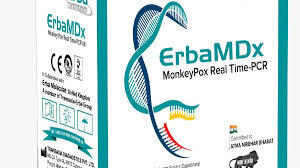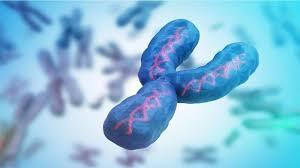The World Health Organization (WHO) has declared its second Public Health Emergency of International Concern due to the ongoing Monkeypox (Mpox) outbreak. A new strain of the virus, known as Clade-1, has emerged. This strain is not only more transmissible but also has higher mortality rates, raising global concern.
In response to this growing health crisis, India has made a significant breakthrough by developing its own indigenous RT-PCR testing kit to detect Monkeypox. This testing kit has been approved by the Central Drugs Standard Control Organisation (CDSCO), marking a critical milestone in India’s “Make in India” initiative.
Siemens Healthineers and India’s Indigenous Testing Kit
The IMDX Monkeypox Detection RT-PCR Assay, developed by Siemens Healthineers, has received manufacturing approval from CDSCO. This development is a significant step forward in India’s efforts to combat the Monkeypox public health emergency.
“IMDX Monkeypox Detection RT-PCR Assay will be manufactured at our molecular diagnostics manufacturing unit in Vadodara, which has a manufacturing capacity of 1 million reactions per year. The factory is all set to make the kits available,” said Siemens Healthcare Private Ltd.
Ground-Breaking Molecular Diagnostic Test
The IMDX Monkeypox Detection RT-PCR Assay is a state-of-the-art molecular diagnostic test. It targets two distinct regions in the viral genome, covering both Clade I and Clade II variants of the virus. This broad targeting ensures that the test can detect various strains of the virus, providing comprehensive results.
One of the standout features of this assay is its platform-agnostic nature. This means it can be integrated into existing laboratory workflows without requiring new instruments. It also makes use of the existing COVID-19 testing infrastructure, which enhances efficiency in testing.
“The IMDX Monkeypox Detection RT-PCR Assay is a ground-breaking molecular diagnostic test that targets two distinct regions in the viral genome, spanning both clade I and clade II variants of the virus. This ensures thorough detection across various viral strains, providing comprehensive results. Notably, this assay is platform-agnostic and seamlessly fits into existing lab workflows with standard PCR setups, eliminating the need for new instruments. The ability to use existing COVID testing infrastructure would enhance efficiency,” the company added.
Importance of Precise Diagnostics
Hariharan Subramanian, Managing Director of Siemens Healthcare Private Limited, emphasized the importance of accurate diagnostics in the current scenario.
“By providing India with advanced assay kits tailored to combat Monkeypox, we are taking a proactive stance in battling this disease and prioritizing prompt and precise detection that can truly make a difference in saving lives. These kits are a testament to our focus on improving ‘Access to Care’ and these assay kits are a significant step towards that goal,” he said.
Rapid and Reliable Testing
Another notable feature of the IMDX Monkeypox Detection RT-PCR Assay is its quick turnaround time. Test results are available in just 40 minutes, which is significantly faster than traditional methods that typically take 1-2 hours. This speedier testing allows for quicker reporting and response times, which is crucial in managing the outbreak.
“With results available in just 40 minutes, significantly faster than traditional methods (which take 1-2 hours), the assay helps reduce the turnaround time for reporting, leading to quicker responses. Clinically validated by ICMR-National Institute of Virology, Pune, the assay boasts an impressive 100 per cent sensitivity and specificity. IMDX Monkeypox RTPCR Assay kits adhere to Indian statutory guidelines and comply with the highest global standards,” the company stated.
India’s development of the IMDX Monkeypox Detection RT-PCR Assay represents a significant stride in the global fight against Monkeypox. This indigenous solution not only showcases the country’s growing capabilities in healthcare innovation but also reinforces the importance of timely and accurate diagnostics in managing public health emergencies.











